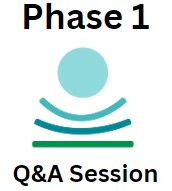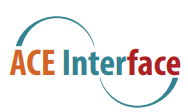Home/More Resilient Minnesota Events
Calendar navigation tips
- You can choose either “grid” view (displays events as a calendar) or “list” view (displays events as a list) to see upcoming events.
- Click on the event on the calendar or list to view additional details and find a registration link.
- When you open an event on the calendar, use the close button or the “return to schedule” link to return to the schedule (if you click the back button, you will return to the main More Resilient Minnesota page.
- You can click on the key/color category to find events that are specific to those audiences.
Events in January 2025
| MonMonday | TueTuesday | WedWednesday | ThuThursday | FriFriday |
|---|---|---|---|---|
|
December 30, 2024
|
December 31, 2024
|
January 1, 2025
|
January 2, 2025
|
January 3, 2025
|
|
January 6, 2025
|
January 7, 2025
|
January 8, 2025
|
January 9, 2025
|
January 10, 2025
|
|
January 13, 2025
|
January 14, 2025
|
January 15, 2025
|
January 16, 2025(1 event)
– Intended Audience:Collaborative Coordinators Description:At this annual meeting, we will be sharing information about Collaboratives and More Resilient Minnesota. There will also be some other state updates. Register Here |
January 17, 2025
|
|
January 20, 2025
|
January 21, 2025
|
January 22, 2025
|
January 23, 2025(1 event)
– Intended Audience:Collaborative Coordinators Description:This 45-minute Phase 1 session is designed for Collaborative Coordinators participating in More Resilient Minnesota who would like to learn more about the planning steps for scheduling and hosting Understanding ACEs: Building Self-Healing Communities presentations (Presentations) in their Collaboratives’ communities. Through More Resilient Minnesota, Collaboratives are eligible to host up to 5 Presentations at NO COST. These Presentations can be offered in partnership with local Collaborative partners. The coordination and scheduling do not need to be managed directly by the Collaborative Coordinator. The 2-3-hour Presentation is designed to educate audiences about NEAR Science, which stands for Neurobiology, Epigenetics, Adverse Childhood Experiences, and Resilience. NEAR Science helps us understand how adversity and trauma impact our biology as well as the health and well-being of our communities. The Presentation offers a message of hope and introduces a process that communities have used to build their capacity to: prevent Adverse Childhood Experiences (or ACEs), support those who have experienced toxic stress, and build new cultural norms that are more inclusive, culturally-responsive, and healing-centered. At this session, we will review:
Register Here |
January 24, 2025
|
|
January 27, 2025
|
January 28, 2025
|
January 29, 2025
|
January 30, 2025(1 event)
– Intended Audience:Collaborative Coordinators Description:Join us for a VIRTUAL Understanding Adverse Childhood Experiences: Building Self-Healing Communities Presentation! Addressing intergenerational and historical trauma, promoting healing and protective factors, and reducing adversity in future generations will require the involvement of many creative, collaborative, and passionate people. The goal of the Understanding ACEs: Building Self-Healing Communities presentation is to offer a common language and understanding of core concepts from the fields of neurobiology, epigenetics, epidemiology (ACEs), and resilience research. You will also have time to discuss your ideas on how this information can be applied to your sphere of influence in your work, family life and community. This presentation will be shared in three sections:
Questions? Contact NEAR@familywiseservices.org Register Here |
January 31, 2025
|



